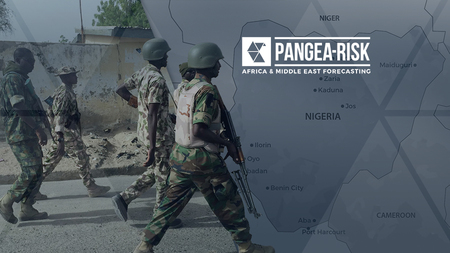
NIGERIA: SOCIAL AND SECURITY RISKS RISE AS ELECTION CONTEST ENTERS CRITICAL PHASE
Fri, 09 December 2022
As Nigeria prepares to hold elections early next year, the political contest has become increasingly heated, with both the country’s foremost political parties experiencing a public backlash over their choice of candidates. At the same time, escalating attacks by Islamist militants and bandits, inter-communal ethnic and religious violence, and the activity of separatist rebels all threaten to undermine the credibility of the election.